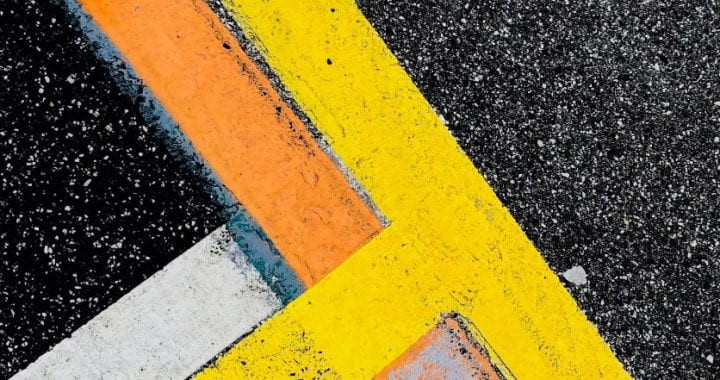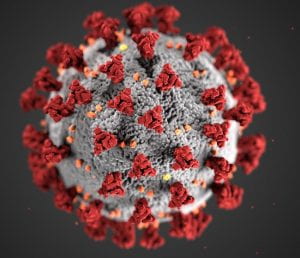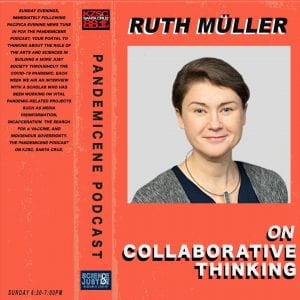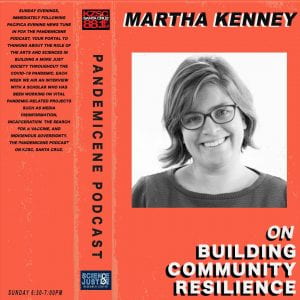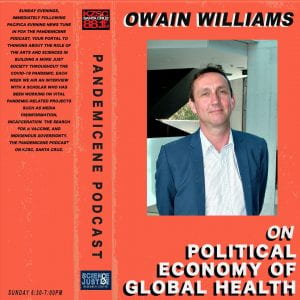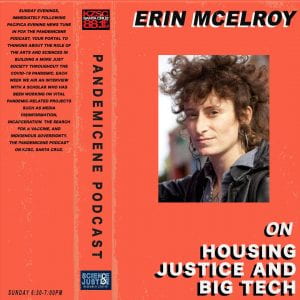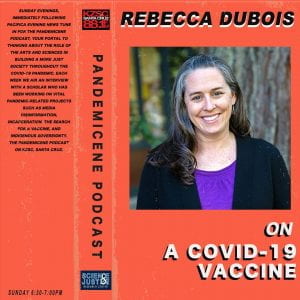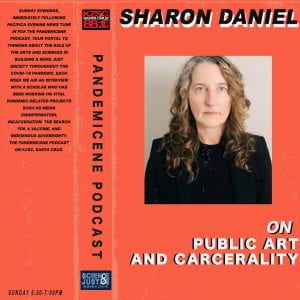Wednesday, April 24, 2024
4:00-5:30 PM
SJRC Common Room Oakes 231 + Zoom (registration)
Join SJRC scholars in Oakes 231 (or on Zoom) for an open discussion! This is a wonderful chance to engage with one another’s ideas, and support our own internal work! At this session, we will hear from Martha Kenney (Department Chair, Women & Gender Studies, San Francisco State University) and Laura Mamo (Health Equity Institute Professor of Public Health, San Francisco State University) on precision public health after Covid-19.
In the mi-2010s, a new paradigm called precision public health has emerged—part genomics, part informatics, part public health, and part biomedicine, touted as a data-driven public health revolution. This presentation reflects on the promises of precision public health in light of the Covid-19 pandemic, looking at how the “precision imaginary” has shifted when confronted with a global health crisis that exacerbated health inequities worldwide.
Martha Kenney (Ph.D. History of Consciousness, UC Santa Cruz) is a feminist science studies scholar whose research explores the poetics and politics of biological storytelling. Her current project examines and intervenes in the narratives emerging from the new field of environmental epigenetics, which studies how signals from the environment affect gene expression. Specifically, she looks at how assumptions about gender, race, class and sexuality influence the design of epigenetic experiments on model organisms and how we understand the relationship between bodies and environments. She has recent and forthcoming articles in Social Studies of Science, Science as Culture, Biosocieties and Catalyst: Feminism, Theory, Technoscience. Dr. Kenney teaches courses on the politics of science, technology, medicine and the environment.
Laura Mamo is the Health Equity Institute Professor of Public Health. Her work lies at the intersection of medical sociology, gender and sexuality studies, and cultural studies of science, technology and medicine. Her research and teaching focus on sexuality and its politics in medicine, science, and health discourse, practice, and resistance. Mamo is the author of the forthcoming book, Sexualizing Cancer: HPV and the Gendered Politics of Cancer Prevention (University of Chicago Press, 2023); Queering Reproduction: Achieving Pregnancy in the Age of Technoscience (Duke University Press, 2007); co-author of Living Green: Communities that Sustain (New Society Press, 2010); and co-editor of Biomedicalization Studies: Technoscience and Transformations of Health, Illness and U.S. Biomedicine (Duke University Press, 2010). Mamo is the co-founder of The Beyond Bullying Project, a multimedia school-based queer sexuality and gender project with Jessica Fields, Jen Gilbert and Nancy Lesko. Mamo’s research has received funding from the National Science Foundation, the Ford Foundation, the Robert Wood Johnson Foundation, and others. Mamo earned her PhD in 2002 from UCSF and BA from University of Wisconsin, Madison. She joined the faculty at SFSU as Health Equity Professor of Public Health in 2010 following appointments as Assistant Professor and Associated Professor of Sociology at the University of Maryland, College Park.


